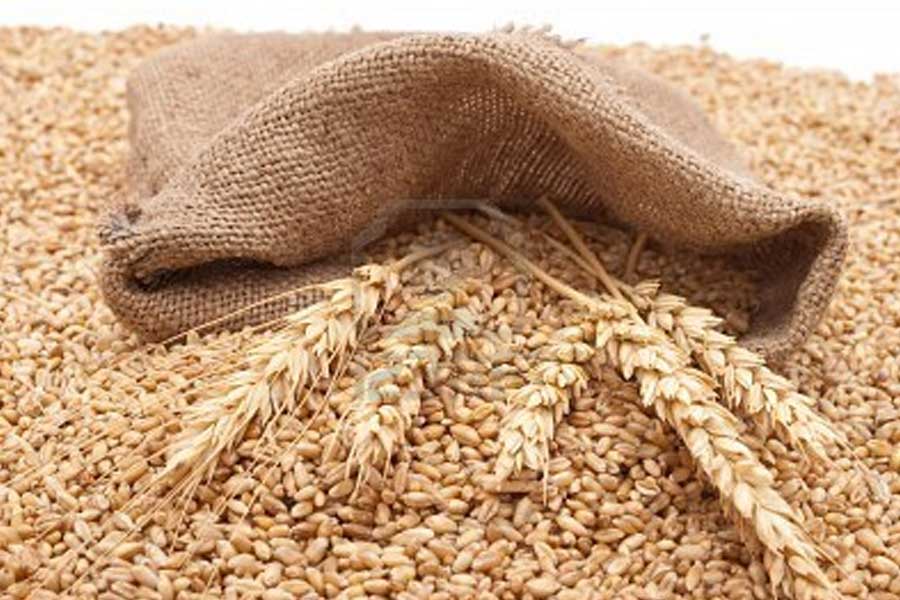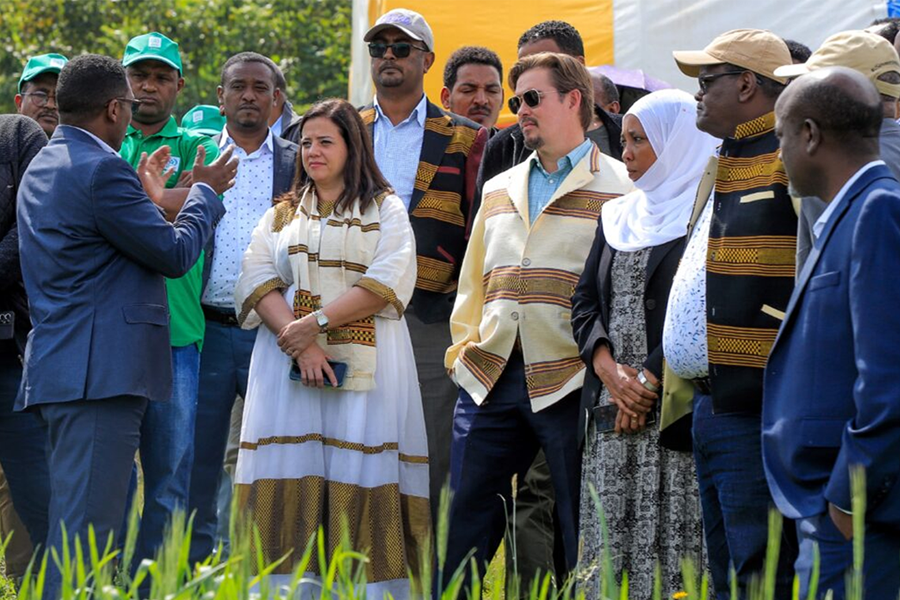
Agenda |
Moroccan executives of the state-owned OCP Group have let agriculture authorities breathe a sigh of relief after offering 50,000tn of much-needed chemical fertilisers, free of charge. At current prices, the commodity is worth more than 35 million dollars.
Ethiopian authorities have struggled to meet demand from eight million smallholder farmers dependent on chemical fertilisers. Only half of the 1.2 million tonnes of fertiliser the federal government bought was available to farmers a month after the Mehir harvest season began in July.
Fertiliser prices have been soaring globally since 2020. The supply crisis has exacerbated following Russia’s invasion of Ukraine six months ago. Ethiopian farmers face retail prices of up to 4,900 Br a quintal, nearly triple what they had previously paid.
The OCP Group, a phosphate rock miner, has been Ethiopia’s primary fertiliser supplier since 2016. Last year, the company supplied 780,000 tonnes of NPS and NPSB for 710 dollars. Its largess last week is part of its "fertiliser relief programme" of providing 180,000tns to some African countries. An additional 370,000tns is offered at discounted prices, disclosed Mohammed Anouar (PhD), the CEO of OCP-Africa, a subsidiary of OCP Group.
Officials are well aware of the significance of last week’s gesture. It will cover a third of the fertiliser needed.
“The government is grateful for the contribution made when fertiliser prices are skyrocketing,” said Oumer Hussein, minister of Agriculture, during a handover ceremony held at a warehouse belonging to the state-owned Ethiopian Agricultural Businesses Corporation in Qality.
According to Sofia Kassa (PhD), a state minister for Agriculture, the fertiliser shipments have reached ports in Djibouti. It will be distributed to farmers incorporated in the government’s off-season farming programme; an initiative launched three years ago.
With aspirations to substitute wheat imports, the administration of Prime Minister Abiy Ahmed (PhD) initiated the off-season farming programme three years ago with the farming of 3,500hct of land. Officials now claim the land used to farm summer wheat reached close to half a million hectares last year, with output projected to reach 107 million quintals.
Federal and regional authorities are tasked with facilitating the provision of agricultural inputs and equipment to smallholder farmers. The government allocated a 400 million Br budget to the programme last year. According to official figures, farmers in the Oromia Regional State farmed nearly 260,000hct under the programme last year. The Amhara Regional State is home to nearly 40,000hct cultivated, which produced 1.5 million quintals of wheat. The harvest is less than half of the 3.6 million quintals the authorities had expected to see produced.
A shortage of agricultural inputs was a factor behind the deficit, says Shimelash Yeshane, senior advisor at the Amhara Agriculture Bureau.
Close to 65,000qtl of fertiliser and improved seeds were distributed to farmers in the region. It was not enough.
Comprising close to 140 cooperatives in 11 weredas of the Gojjam Zone, Merkeb Cooperative Union has been distributing agricultural inputs to farmers included in the off-season initiative. However, the Union could only manage to supply fertiliser to half of the 12,000 farmers under its ambit.
“The demand was more than we could satisfy,” said Getachew Eshetu, the general manager.
Farmers like Geremew Nebere, 36, had little but to resort to other options. Although the father of three had a quintal of fertiliser left over from the previous year, it was not enough to cover his one-hectare plot.
“My yield declined by four quintals last year,” he told Fortune.
He harvested 18qtl a hectare.
Fertiliser shortages have significantly affected productivity in the recently-formed Sidama Regional State. Over 250 farmers there were expected to participate in the programme last year. However, only a quarter managed to grow 2,700qtl of wheat on 100hct. However, these are setbacks not deterring Amsalu Argaw, director of irrigation at the Sidama Agricultural Bureau. His office plans to involve 300 farmers in the programme this year, making agricultural inputs available. Officials hope to see 400,000qtl of wheat cultivated on 10,000hct.
Experts, however, say supplying the inputs alone may not be enough to realise the aspirations of wheat self-sufficiency.
Farmers must believe in the strategy, according to Lemma Wogi (PhD), assistant professor of soil science at Haromaya University.
“Forcing them to join the programme without the necessary inputs will not bring the desired outcome,” he warns.
Wheat accounts for about a fifth of Ethiopia’s total cereal production. A significant portion still grows on small farms, contrasting with the widely held narrative that Ethiopia is among Africa’s top three wheat producers. Harvests are only sufficient to cover two-thirds of national demand.
The federal government procures the grain from the international market. Imports have ballooned from 600,000tns to 1.7 million tonnes a year over the past decade. The country spends over a billion dollars annually on wheat imports. Eastern European countries such as Russia, Ukraine, and Bulgaria have been primary wheat sources for many African countries, including Ethiopia and Egypt.
Egyptian officials’ attempt to buy five million tonnes of wheat last week was thwarted. A steep rise in prices and the overwhelming logistics hurdles surfaced following the outbreak of war in Eastern Europe took the blame.
PUBLISHED ON
Aug 27,2022 [ VOL
23 , NO
1165]

Viewpoints | Jun 08,2024

Commentaries | Dec 04,2022

Fortune News | Mar 06,2021

Viewpoints | Dec 04,2022

Radar | Oct 27,2024

Dec 22 , 2024 . By TIZITA SHEWAFERAW
Charged with transforming colossal state-owned enterprises into modern and competitiv...

Aug 18 , 2024 . By AKSAH ITALO
Although predictable Yonas Zerihun's job in the ride-hailing service is not immune to...

Jul 28 , 2024 . By TIZITA SHEWAFERAW
Unhabitual, perhaps too many, Samuel Gebreyohannes, 38, used to occasionally enjoy a couple of beers at breakfast. However, he recently swit...

Jul 13 , 2024 . By AKSAH ITALO
Investors who rely on tractors, trucks, and field vehicles for commuting, transporting commodities, and f...

Jul 5 , 2025
Six years ago, Ethiopia was the darling of international liberal commentators. A year...

Jun 28 , 2025
Meseret Damtie, the assertive auditor general, has never been shy about naming names...

Jun 21 , 2025
A well-worn adage says, “Budget is not destiny, but it is direction.” Examining t...

Jun 14 , 2025
Yet again, the Horn of Africa is bracing for trouble. A region already frayed by wars...